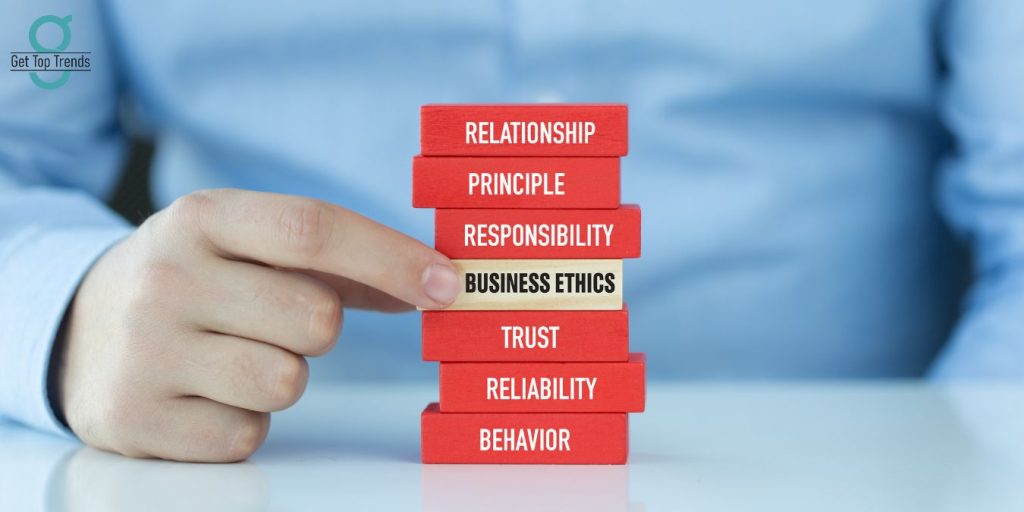Employee misbehavior is a usual thing that creates ethical issues in business. Disgruntled employees routinely violate the norms of behavior of their employers. Workplace harassment, claiming credit for work done by others, abusing corporate time, and other actions by irate workers present several ethical concerns.
Even though this behavior is expected, there are instances of employee misbehavior that are not reported for various reasons. Coworkers may fear retaliation for “tattling” or feel threatened by their dishonest peers. Others may just look the other way to stay out of trouble. In any case, misbehavior greatly disrupts work environments.
Perfect Ways to Deal With Ethical Issues at the Workplace
It can be challenging for managers and human resources (HR) specialists to handle ethical dilemmas successfully. Even with regulations in place to hold people accountable, unethical behavior in the workplace and unethical actions by organizations are still possible. Understanding the potential ethical dilemmas that a company may encounter as a manager or HR specialist will help you prepare to handle them skillfully should they arise. Moreover, you can hire an ethical trainer for resolving ethical issues in business.
This article examines ethical issues in business, provides various instances, and discusses management strategies. Let’s see!
Your team may take proactive measures daily, such as imposing a solid code of ethics for decision-making, to recognize and discourage ethical difficulties. You can ensure it consistently abides by the laws pertinent to these moral dilemmas.
You may also work with accountants to maintain integrity and openness when assembling the company’s financial reports.
What specific actions may businesses take to reduce employee misbehavior while also easing the concerns of witnesses about potential retaliation? There are several ways to deal with ethical dilemmas in the workplace, even when there isn’t a clear solution.

Announce a Policy
Most big businesses have codes of ethics that specify precisely what constitutes employee misbehavior and how it will be dealt with. These documents outline the company’s philosophy, purpose statement, and the staff members’ expectations of one another.
Companies should, however, periodically review these codes of ethics to consider any new developments and modifications to national customs. Managers should acquire employee buy-in when it’s time to update the code to understand the daily problems that people “on the ground” deal with. Executives and managers show how valuable the team is by involving everyone in this process.
Make Use of a Secure System
Employees may be reluctant to raise the alarm for fear of upsetting their coworkers, even when they know there won’t be any consequences. It is no one’s desire to be recognized as the workplace gossip.
Managers should establish a private channel for reporting ethical transgressions to mitigate this problem. Similarly, to preserve the privacy of people they must confront, managers should privately conduct punishment. Above all, managers must never penalize an entire group for the misbehavior of one or two employees.
Create an Integrity Culture
Individuals naturally want to get along with others, and long after high school, they still want to fit in and follow the social conventions of those around them. Although acknowledging this may not be enjoyable, most individuals have reasonably flexible ethical standards. While most individuals still want to “do the right thing,” who they surround themselves with significantly impacts what constitutes right. Culture is important.
Thankfully, a strong ethical culture is significantly more likely if your business has painstakingly developed an ethics and compliance program and integrated it into the corporation’s day-to-day operations.
Studies demonstrate that a strong ethics and compliance program fosters an honest culture where all group members “walk the talk.” Workers at all levels are dedicated to respecting norms and values and doing the right thing when a robust ethical culture is in place.
Maintain Consistency
When managers put in place a framework for handling moral dilemmas at work, all employees must follow the guidelines to the letter. Employees commit to holding themselves to a higher level and accepting the penalties for not doing so when they sign the new policy, demonstrating their awareness of it and commitment to comply. Employers need to commit to upholding the same standards for themselves. The system will not work if one party violates the agreement.
It makes sound economic sense for a company to have a solid code of ethics as it keeps trust from eroding both inside and beyond its walls and enhances financial stability and success. Businesses can never be free from misbehavior or angry workers.
However, supervisors may put regulations in place to reduce the ethical dilemmas that arise at work. Employers may improve workplace safety and happiness for all employees by training those eager to learn and firing those not.
Concluding Thoughts
It’s important to be ready to handle ethical dilemmas that may occur, even if you’ve taken all the required safeguards. To begin with, identify all the ethical challenges your company could encounter, figure out how to spot them early on, and—above all—learn how to handle them honestly without downplaying or denying their existence. Never be afraid to ask for legal counsel if you’re unsure how to proceed in a particular circumstance.


